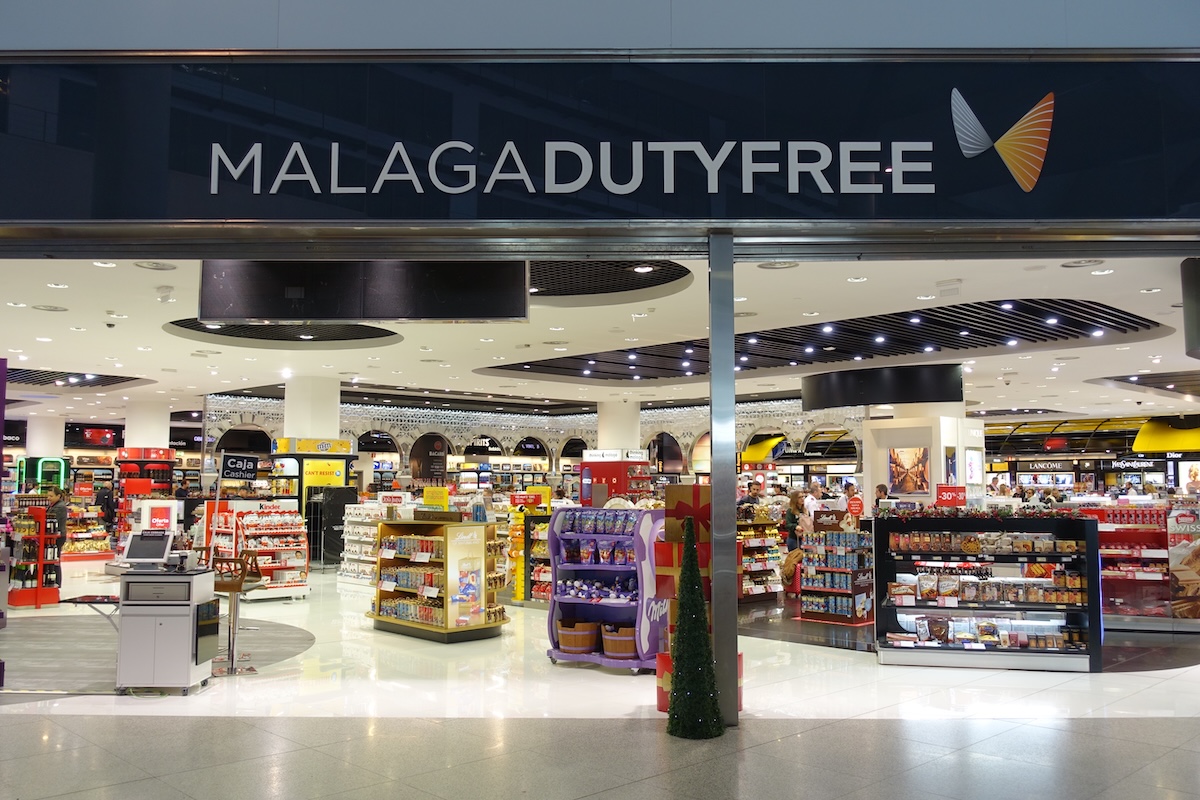
How Does Duty-Free Shopping Work? What You Can and Can’t Bring Back Home
By: Sarah Stone
Skip to Section
Article Summary
Duty-free shopping sounds like a great way to save money – but it’s not always as good as it looks. This guide breaks down where it actually makes sense to buy duty-free, what your legal limits are when returning home, and how to avoid getting hit with surprise customs fees (or worse, having your stuff confiscated).
Whether you’re eyeing perfume, whiskey, or luxury chocolate, it pays to know how duty-free works before you swipe your card. This article shows you what’s worth buying, how different countries handle import limits, and what to watch out for so you don’t end up paying more than expected.
- Understand what “duty-free” really means and why it exists.
- Learn where to find the best deals – and which products usually aren’t worth it.
- Know your home country’s customs limits for alcohol, tobacco, and goods.
- Avoid common mistakes like buying liquids before connecting flights or ignoring local restrictions.
- Stay out of trouble with customs by knowing what you’re not allowed to bring home at all.
You’re at the airport and you’ve spotted a bottle of your favorite perfume for 30% less than retail price. Or maybe you’re eyeing a fancy whiskey before your international flight. Duty-free shops tempt us with glossy displays and promises of savings, but how exactly does duty-free shopping work? And more importantly, what can you actually bring back home without getting stopped by customs?
Here are some of the basics of duty-free shopping—hopefully this will help you shop smartly on your next trip abroad!
What Does “Duty-Free” Actually Mean?
When you see “duty-free,” it means the items sold there don’t include local taxes and import duties that you’d normally pay at regular retail stores. This tax exemption happens because the products are technically sold for use outside the country where you bought them.
Governments allow duty-free shops to sell goods without these taxes because the items are meant to leave the country with travelers. The concept began at Ireland’s Shannon Airport in 1947 and has grown into a multi-billion dollar global industry.
Where Can You Shop Duty-Free?
You can find duty-free shops in several locations:
- International airports: Found past security in departure terminals
- Cruise ships: On board while in international waters
- International borders: At some land crossings between countries
- Some tourist destinations: In specific tax-free shopping zones
Duty-free shopping only applies to international travel. You won’t find genuine duty-free shops on domestic flights or trips.
What Duty-Free Items Are Actually Good Deals?
The typical duty-free shop stocks:
- Alcohol: Often one of the better deals, especially for premium brands
- Tobacco: Can offer savings, though many countries limit how much you can bring back
- Perfume and cosmetics: Sometimes good deals, but not always better than sales at home
- Chocolates and sweets: Often local or specialty brands
- Luxury goods: Watches, jewelry, and designer items
- Electronics: Usually not the best deals compared to online prices
Which items offer real savings? It varies by country, but alcohol typically provides the best value, especially in places with high liquor taxes like the UK, Nordic countries, and Australia. Tobacco products can also be significantly cheaper, though many travelers are moving away from these purchases.
Perfume and cosmetics might save you 10—20% compared to department store prices, but don’t assume every duty-free price is a bargain. You might be able to find the same things on Amazon and other online retailers for less.
Customs Limits and Allowances
Just because you bought something duty-free doesn’t mean you can bring unlimited amounts back home. Each country sets its own limits on what you can bring in without paying extra duties. You should look up your country’s requirements before shopping—information can change, so it’s up to you to find the most up-to-date details.
For US residents returning home, general allowances include:
- Alcohol: 1 liter (about 33 oz) per person duty-free. Additional amounts are subject to duty and taxes.
- Tobacco: 200 cigarettes and 100 cigars per person
- Gifts and purchases: Up to $800 worth of items per person before duties kick in
These limits apply to the total amount you’re bringing in, whether purchased at duty-free shops or regular retail stores abroad.
Canada has similar but slightly different limits:
- Alcohol: 1.14 liters (40 oz) of liquor OR 1.5 liters of wine OR 24 x 355ml cans/bottles of beer
- Tobacco: 200 cigarettes, 50 cigars, 200g of tobacco
- General goods: Up to $200 CAD for trips over 24 hours, and up to $800 CAD for trips over 48 hours
UK allowances include:
- Alcohol: 42 liters of beer, 18 liters of still wine, and 9 liters of sparkling wine OR 4 liters of spirits
- Tobacco: 200 cigarettes OR 100 cigarillos OR 50 cigars OR 250g of tobacco
- Other goods: Up to £390 total value
Australia has particularly strict limits:
- Alcohol: 2.25 liters total
- Tobacco: 25 cigarettes or 25g of tobacco products, unopened
- General goods: Up to AUD$900 (AUD$450 for under 18s)
Going over these limits doesn’t mean you can’t bring items in, but you’ll need to pay duties on the excess.
How to Shop Duty-Free Smartly
Follow these tips to make the most of duty-free shopping:
- Know your home country’s allowances before you shop. Keep the limits in mind and stay within them.
- Compare prices with regular retail stores. Some duty-free items aren’t much cheaper than what you’d find at home, especially during sales.
- Consider weight and space in your luggage.
- Keep receipts handy for customs. Officials might ask for proof of how much you spent.
- Buy on your way out, not on your return trip. If you’re flying from the US to Europe, for example, buy duty-free when leaving Europe, not when leaving the US (since you’ll need to go through customs with those items when entering Europe).
- Check special rules for certain destinations. Travel to and from EU countries, for instance, has specific regulations about what counts as duty-free.
Common Duty-Free Mistakes to Avoid
Many travelers make these costly errors:
- Buying liquids at duty-free when you have a connecting flight. If you need to go through security again at your connection point, those liquids might get confiscated.
- Assuming all duty-free shops have the same prices. Prices vary widely between airports and countries. Some destinations (like Bangkok and Singapore) consistently offer better duty-free deals than others (like US airports).
- Forgetting about airline liquid restrictions for carry-ons. Duty-free liquids are generally exempt from the 3-1-1 rule, but you’ll need to keep them sealed in the security bag with the receipt visible.
- Purchasing items you could easily get at home.
What You Cannot Bring Back Home
Some items remain restricted regardless of where you bought them:
- Fruits, vegetables, plants, and seeds are typically prohibited or heavily restricted due to agricultural concerns.
- Meats, dairy, and other food products face similar restrictions to prevent the spread of diseases.
- Counterfeit goods, even if purchased unknowingly, can be seized by customs.
- Certain medications that are legal abroad but not approved in your home country.
- Cuban cigars remain restricted for US travelers.
- Absinthe with high thujone levels is still banned in some countries.
With these guidelines in mind, you can make smart duty-free purchases that actually save you money—and avoid that sinking feeling when customs makes you pay extra or, worse, confiscates your expensive purchases.
About the Author
 As the editor-in-chief of Frayed Passport, my goal is to help you build a lifestyle that lets you travel the world whenever you want and however long you want, and not worry about where your next paycheck will come from. I've been to 20+ countries and five continents, lived for years as a full-time digital nomad, and have worked completely remotely since 2015. If you would like to share your story with our community, or partner with Frayed Passport, get in touch with me using the form on our About page.
As the editor-in-chief of Frayed Passport, my goal is to help you build a lifestyle that lets you travel the world whenever you want and however long you want, and not worry about where your next paycheck will come from. I've been to 20+ countries and five continents, lived for years as a full-time digital nomad, and have worked completely remotely since 2015. If you would like to share your story with our community, or partner with Frayed Passport, get in touch with me using the form on our About page.Featured image by Ulflarsen on Wikimedia Commons.
Information published on this website and across our networks can change over time. Stories and recommendations reflect the subjective opinions of our writers. You should consult multiple sources to ensure you have the most current, safe, and correct details for your own research and plans.
Frayed Passport is a participant in the Amazon Associates Program, an affiliate advertising program designed to provide a means for sites to earn advertising fees by advertising and linking to Amazon.com. We also may share links to other affiliates and sponsors in articles across our website.




